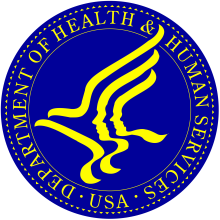Consumer Health
Tulsa City-County Library has an extensive collection of reference, circulating, and electronic resources promoting consumer health education. Below are reliable, unbiased print and electronic resources addressing different health information needs. Research family health, choosing a healthcare professional for your needs, and much more.
Resources for Families
Use the “List of all Topics” or alphabet to search. (Some topics are in Spanish).
KidsHealth is the largest and most-visited site on the Web providing doctor-approved health information about children from before birth through adolescence. This award-winning site is created by The Nemours Foundation's Center for Children's Health Media.
Girls’ and Women’s health topics from the U.S. Department of Health and Human Services.
Helping families be safer, healthier and stronger. Also available in Spanish.
Get to know the best children’s hospitals of the current year according to this reputable news magazine.
Resources for Hispanic Persons and Families
The NAHH is the oldest and largest network of U.S. health and human service providers for Hispanic consumers.
The FDA seeks to empower the growing Hispanic population to take control of their own health through providing a variety of resources in Spanish.
The National Hispanic Family Health Helpline provides free reliable and confidential health information in Spanish and English to help callers navigate the health system.
Indian Health Services
IHS makes available select information on specific healthcare topics concerning American Indian and Alaska Natives. The information provides an overview as well as detailed descriptions of issues that concern all aspects of the Native American Community.
Choosing a Doctor
The Association of State Medical Board Executives maintains DocFinder website. Information on Oklahoma doctors is available.
This public website is designed to serve the public with their individual search for providers.
Available in the Research Center at Central, this is a comprehensive guide to medical and health information. Medical and Health Information Directory provides a one-stop source to medical and health information.
Published by the American Board of Medical Specialties, Certification Matters is a reliable source in researching certification status of American doctors. Additionally, there is a toll free hotline 800-733-2267 and the American Medical Association can be reached at 312-464-5000 for information on training, specialties and board certification.
Basic Information on physicians, hospitals and nursing homes in specific U. S. cities, and a very basic evaluation (1-5 star rating) of hospitals' performance in various specialties is free on this Web site. For a fee, you can get detailed evaluations of physicians, hospitals, and nursing homes.
Choosing a Hospital
This Web site allows you to select hospitals and compare them on their performance on specific medical procedures.
Every Year the U.S. News & World Report's Best Hospitals rankings cover 170 hospitals in 16 adult specialties. Unranked hospitals in this specialty are listed in alphabetical order after the ranked hospitals.
Part of the Research Center's print collection, the Comparative Guide to American Hospitals provides a snapshot profile of each of the nations 4,834 hospitals.
Cancer
Get everything you need to know about cancer, from the basics to detailed information on more than 70 cancer types.
Trusted, compassionate information for people with cancer and their families and caregivers, from the American Society of Clinical Oncology (ASCO), the voice of the world’s cancer physicians and oncology professionals.
Find information and resources that fit your needs as a patient, caregiver, health professional, researcher, or other visitor.
Stroke
All health/medical information on this website has been reviewed and approved by the American Heart Association, based on scientific research and American Heart Association guidelines.
The mission of NINDS is to seek fundamental knowledge about the brain and nervous system and to use that knowledge to reduce the burden of neurological disease.
The National Institutes of Health through the National Institute of Neurological Disorders and Stroke (NINDS) developed the Know Stroke. Know the Signs. Act in Time. campaign to help educate the public about the symptoms of stroke and the importance of getting to the hospital quickly.
Whether you are a stroke survivor, caregiver, or healthcare professional we strive to bring you the most up to date, unique and comprehensive resources for stroke. From online education to resources such as StrokeSmart magazine and support groups—we are here to help.
Heart Disease
The AHA has grown into the nation’s oldest and largest voluntary organization dedicated to fighting heart disease and stroke.
In the United States, the most common type of heart disease is coronary artery disease (CAD), which can lead to heart attack. You can greatly reduce your risk for CAD through lifestyle changes and, in some cases, medication.
Providing global leadership in research, training, and education to prevent and treat heart, lung, blood and sleep disorders.
Chronic Lower Respiratory Disease (COPD) and Related Health Issues
The American Lung Association is leading the way in helping all Americans breathe easier. Thanks to our donors, volunteers, program and event participants, and staff, we are America’s trusted source for lung health education, lung disease research, support, programs, services and advocacy.
The COPD Foundation was established to undertake initiatives that result in expanded services for COPDand to improve the lives of individuals affected by COPD. The Foundation’s activities focus on achieving these results through research, education and advocacy programs that will lead to prevention and a cure for this disease.
Unintentional Injuries/Safety
In the United States, injury is the leading cause of death for children and adults between the ages of 1 and 45.
CPSC's work to ensure the safety of consumer products - such as toys, cribs, power tools, cigarette lighters, and household chemicals - contributed to a decline in the rate of deaths and injuries associated with consumer products over the past 40 years.
Know if there is a safety problem with your vehicles, tires or car seat, and how to get it fixed.
The mission of the Injury Prevention Service is to improve the health of Oklahomans by working in collaboration with communities and stakeholders to identify injury problems, then developing, implementing, and evaluating environmental modifications, policy, and educational interventions.
